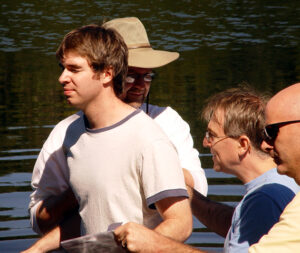
I’ve enjoyed reading Joel Green’s Body, Soul, and Human Life. While I can’t say I fully understand or agree with everything I’ve read, it has been very helpful in connecting the dots of several concepts, particularly, how we are to think about ourselves. Green makes the case that we shouldn’t see ourselves in a Cartesian way (i.e. René Descartes of “I think, therefore I am” fame), meaning that our true self is mind or spirit quite apart from our bodies. Rather, Green says that human identity is threefold: physicality, relationality, and narrativity. This has important implications for community, which I’d like to explore briefly.
Physicality
Our bodies are not something we have but part of who we are. The Scriptures talk about bodily resurrection, not a disembodied spiritual existence, so even in the after life, the body will matter. What does this mean for us? Among other things, it means that what I do with my body is important. It means my gender matters and is part of who I am. It means that this life and creation are good, to be cared for and treasured, and not to be seen as alien and sinful. It means that caring for people’s physical needs cannot be separated from caring for their “spiritual needs.” As Green says, “Angst among Christians in recent decades over how to prioritize ministries of ‘evangelism’ and ‘social witness’ is simply wrongheaded, therefore, since the gospel, the ‘evangel’ of ‘evangelism’ cannot but concern itself with human need in all its aspects.”
Relationality
Individualism is the plague of our time and is fully at play in the Church. Cartesian thinking makes us believe that our identity, our true self, is a personal possession of an inner reality. It’s me and Jesus and all I need is some good instruction to be a better me. The truth is that we are a inextricably part of a web of relationships. We are part of a community and our identity is tied into that network of people. Green points out that our brains are actually shaped by our relationships, so in a very tangible sense, our relationships shape who we are. There are no loners, and to try to be one is to fight against reality. This is why cherishing, developing, and enjoying our relationships must be our prime task in life. Quoting Green, “…we are shaped in our character and limited in our choices by the company we keep.”
Narrativity
The stories by which we make sense of our lives play a part in forming who we are. Our life is less like the running of a machine and more like the performance of a drama. Our history matters. Our direction matters. We need to know, like Jesus, where we come from and where we’re going (John 13:3-4). Our story and the overarching story we identify with sculpts us profoundly. Narrative disrupting experiences, like divorce, hurt us because whole chapters of our lives become off-limits. We can’t escape our history (so true especially today in a Facebook world). This is a further reason to continue in our relationships and work through difficulties. Additionally, we need to actively recall and rehearse the overarching narrative of God that we are a part of. Liturgy, regular scripture reading, and flowing in the rhythm of the Christian calendar are ways to do this.
This understanding of our nature impacts and supports the vision of Christian community. We are not marbles in a bucket, but cells in a body. Green would say, “…who we are, our personhood, is inextricably bound up in our physicality, and so is inextricably tied to the cosmos God has created, and in the sum of our life experiences and relationships.” Christian community fits well in this view of humanity.